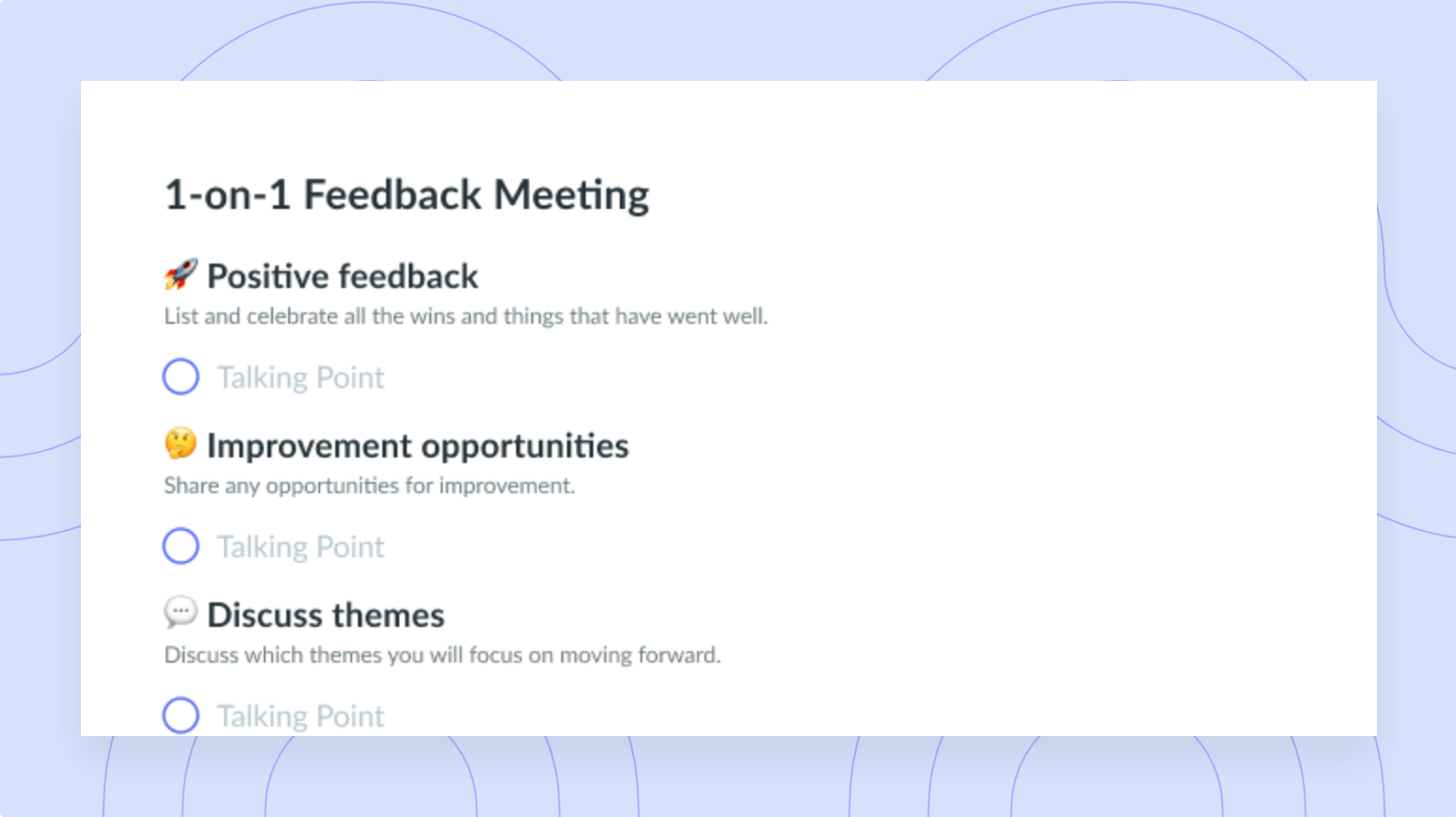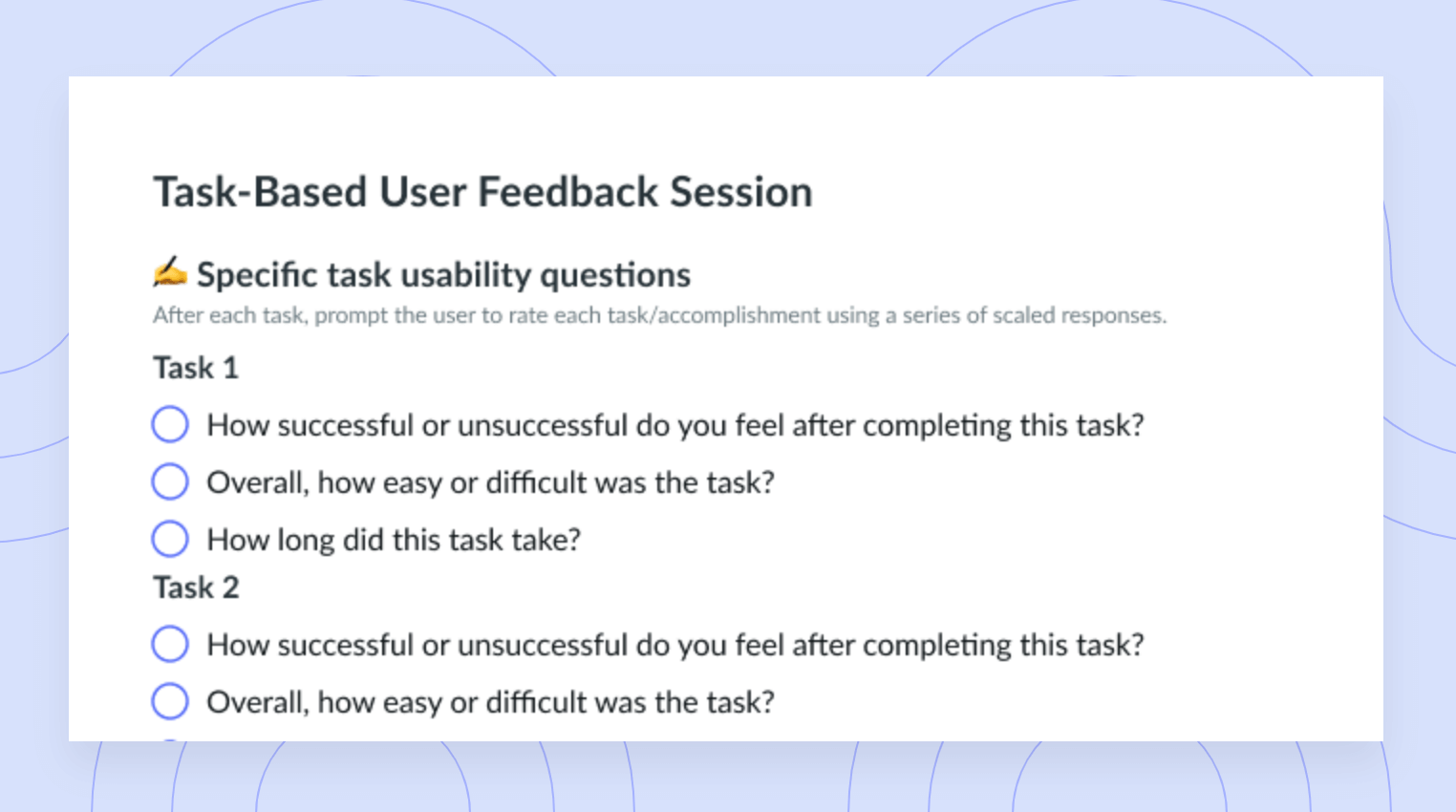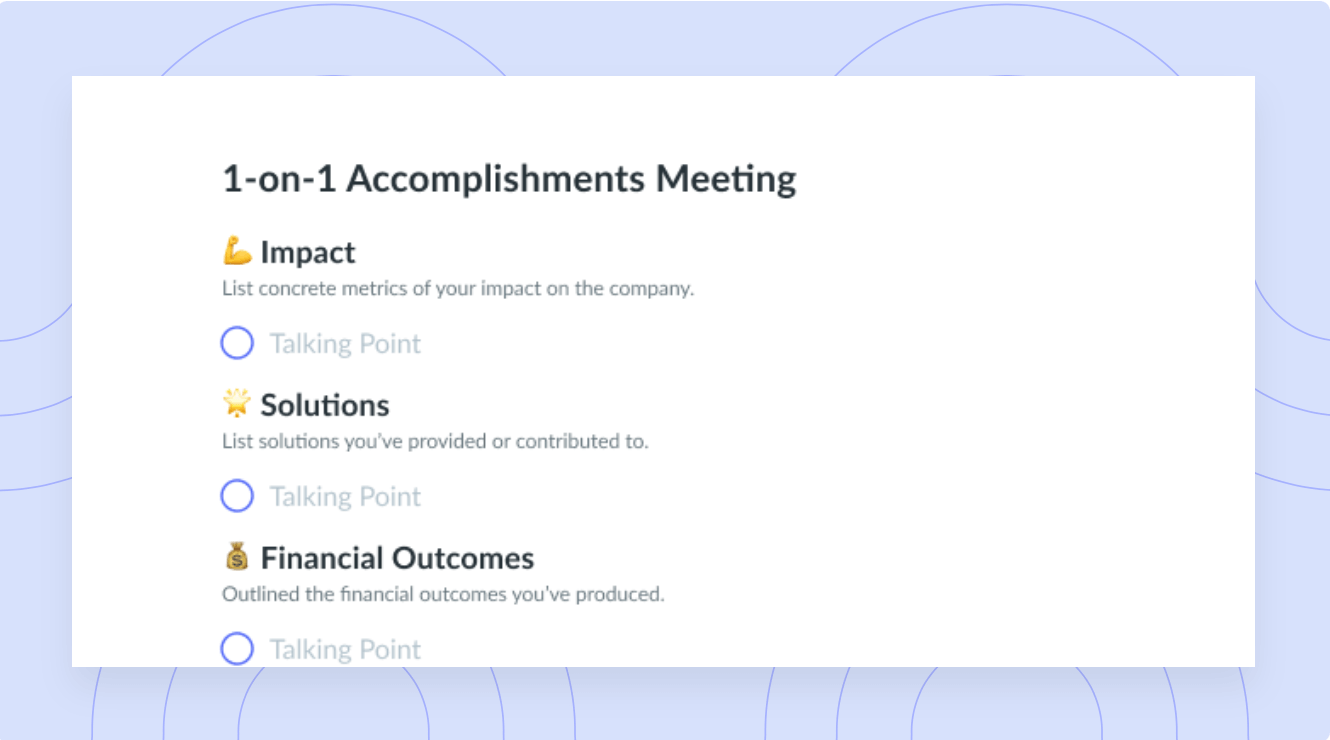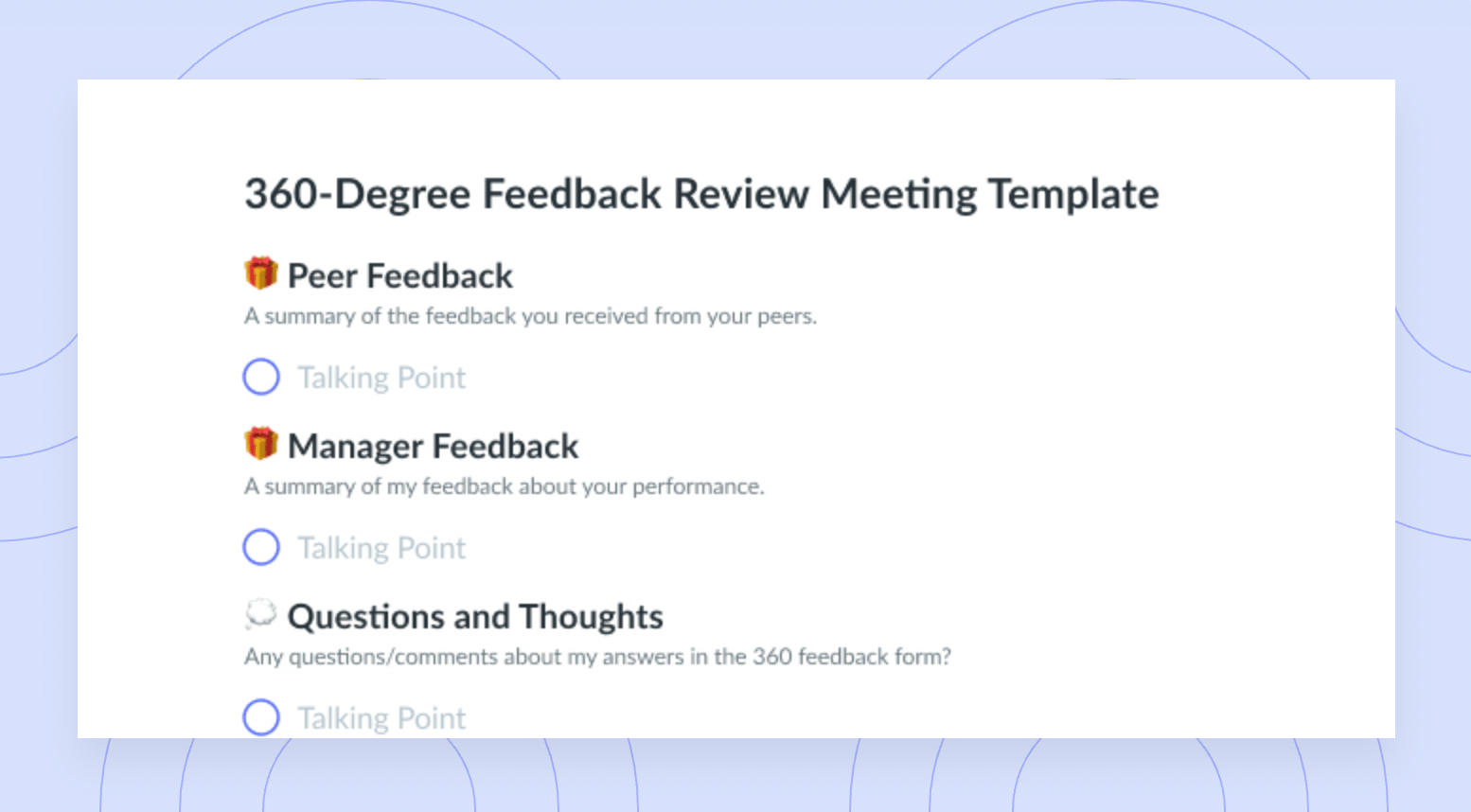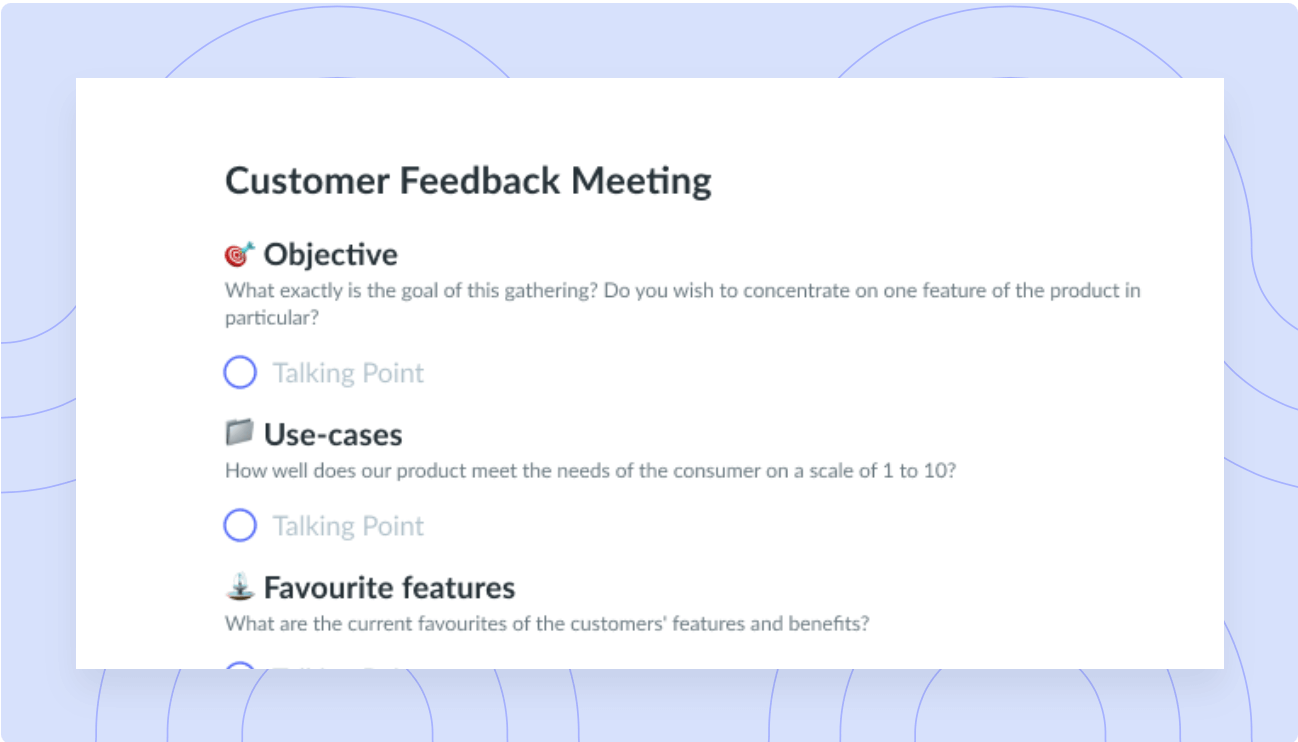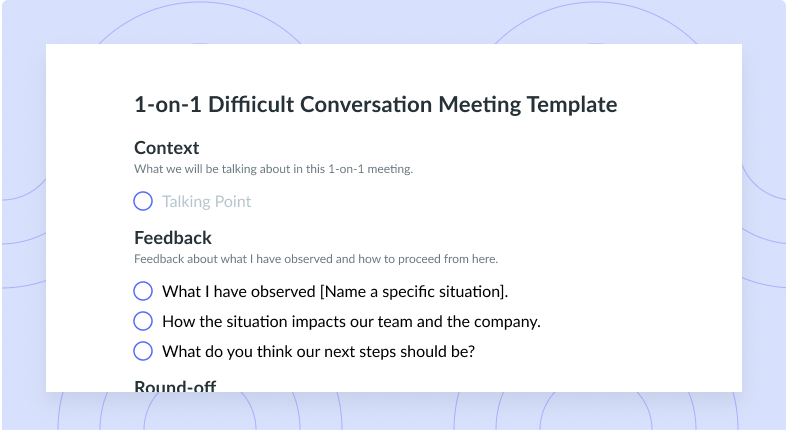How To Give Feedback To Your Boss (And Avoid Coming Off Negative)
It’s possible to give feedback to your manager or superior without coming off as negative. We break it down and share why it's important.
When you think about feedback in the workplace, it’s common to associate it with a top-down approach. Meaning, we get feedback from our managers. We provide feedback to our peers.
Very seldomly do we consider giving feedback to our boss. The idea of doing so could instantly make you sweat with anxiety. But, it’s possible to give feedback to your manager or superior without coming off negative, like a jerk, or like you’re not a team player.
Let’s break it all down!
- Reasons why you should be sharing feedback with your boss
- 6 tips to give constructive feedback to your manager
- When not to give your boss feedback
- Good moments to share feedback with your boss
- Real-life examples
- Don’t let the fear of feedback hold you back
Reasons why you should be sharing feedback with your boss
No matter how awkward, or even tense, giving feedback to your manager or boss may be, when done correctly, it can go a long way.
There are many reasons why you should be sharing feedback with your boss. For starters, no one is perfect, and when you start a feedback conversation with your boss, it’s likely to improve your working relationship. It also shows your boss that you care about creating a culture of transparency and trust with one another that doesn’t just center around positive feedback.
Additionally, it lets your boss or manager know what you care about the company as a whole, the team you’re on together, and building a culture where it’s okay to bounce constructive criticism back and forth. Leaving certain things left unsaid can do more harm than good.
And, sharing feedback will show your manager that you aren’t one to shy away from having a difficult conversation. No matter what the feedback may entail, bringing it up to your boss takes guts.
6 tips to give constructive feedback to your manager
Ready to give some constructive feedback to your manager? Follow these six tips so you don’t sound like a jerk.
1 Prepare what you want to say, and how to say it, in advance
First thing first, be prepared before you start the conversation with your boss or manager. Know exactly what you want to say before approaching your manager. It’s in your best interest to consider practicing, out loud, before you actually meet, so you can be sure that your tone is professional, you sound calm and relaxed, and that you’re coming off in the best light possible.
To prepare, consider writing everything you want to say down, outlining your main concerns and the examples you’ll need to back your feedback up.

Pro Tip
Use a feedback tool like Fellow to ask and share feedback about meetings, projects, and performance!

2 Bring up examples
As stated, examples are crucial to providing feedback to your boss. The most effective feedback, no matter if it’s to your manager or fellow team members, is to be as specific as possible with concrete examples.
The examples you bring to the conversation will depend on the feedback you’re providing. Regardless, it’s important to bring specific examples to your conversation to back up the points you’re looking to make.
3 Address it as soon as possible
Once you know exactly what you want to say, make sure to deliver the feedback to your boss as soon as you can. While you may be tempted to send an email or a direct message, it’s always better to meet and talk in person or using video conferencing software.
This will help you to read any potential cues from your manager, like the tone in their response and their body language throughout. Without it, there’s a lot of room for miscommunication.
Be sure the time you schedule to chat is as soon as possible, that way, the feedback can stay relevant and top of mind. The sooner you provide feedback and bring up the situation you’d like to discuss, the easier it’ll be for your boss to come to a solution. Don’t wait until your yearly performance review to provide feedback.
4 Explain the impact
If the issue is important enough to you to bring to your manager, then it clearly impacted you in some way. Explain to your boss exactly where you’re coming from, how you were impacted, and why you felt it was necessary to bring this to their attention.
5 Avoid blaming or personalizing
Going hand-in-hand with making sure your tone is calm and professional, you also want to avoid blaming, personalizing, venting, and coming off like you’re attacking a situation. The meeting you have with your manager isn’t the time for you to unload your thoughts and feelings, but to have a two-way conversation regarding an issue, concern, or potential problem within the organization.
6 Be solutions-oriented
Once you’ve said everything you wanted to say and presented examples, take the time to come to a solution together.
Or, even better, walk into the meeting with a few solutions you came up with ahead of time. This shows your boss that you’ve taken the time and effort needed to create ideas of how things could change in the future, and that you are your own problem solver, and not only looking to them to come up with a resolution.
It’s important to remember that a solution may not be possible if the feedback is centered around a negative habit or personality trait, but you could still show your manager exactly how you’re invested in the team and organization as a whole.
When not to give your boss feedback
Just like with everything in life, there’s a right and a wrong time for everything, including giving feedback to your manager.
I had a science teacher in high school who used to say, “Timing is of the essence, and yours sucks.” We can apply the same strange logic to giving feedback to your boss.
It’s never a good idea to provide feedback to your manager during a company-wide or team meeting. Your boss will feel like you’re calling them out, on purchase, in front of an audience, and they won’t thank you for it. The same notion is true if you’re both in a meeting with a client or contractor. Your manager will think you’re airing out dirty laundry, so to speak, in front of someone who the company is looking to potentially win over.
You also want to avoid giving your boss feedback, especially if it’s negative if they’re clearly busy or having a bad day. If you’ve checked their calendar and are considering adding time to talk with them after they’ve had an entire day of meetings, consider a different time. The same can be said if your boss is just coming back from a dentist appointment or running errands. It’s best to catch them in a better mood before presenting constructive criticism.
To ensure your conversation is as effective as possible, make sure your timing is truly of the essence with giving feedback to your boss.
Good moments to share feedback with your boss
Looking for the right time? If their calendar is clear, and they seem like they’re in a relatively good mood, then it could be a good moment to share feedback.
You can also look out for specific moments within their schedule to share what’s on your mind. These moments can be:
- During a weekly or bi-weekly one-on-one meeting
- During a debrief session before, after, or during a project
- During a performance review
- During a conversation in which they directly ask for your feedback or input
Real-life examples
Let’s put what we learned into practice, shall we?
If you’re looking to share feedback regarding your overwhelming workload with your manager (and to avoid burnout!) you can say something like:
“I can add this project to my to-do list, but only if we extend the deadline of X”.
Or,
“Seeing as how time-sensitive Project X is, I’m unable to take it on and give it the time and energy it needs to be a success.”
If you and your manager are experiencing a miscommunication, you could give them feedback that looks like:
“Can we discuss X in more detail? I want to make sure we’re on the same page with how to get it completed successfully.”
Or,
“It took me by surprise to hear you speak about X in today’s meeting. Can we discuss exactly what you meant?”
For project management, or managing expectations as a whole, feedback to your manager could be:
“I’m having some trouble with X, do you have the time to provide more details about the program with me, so I know what you have in mind?”
Or,
“Project X looks like it’s becoming more of what we had originally had in mind. How are you thinking about structuring it?”
Don’t let the fear of feedback hold you back
At the end of the day, you and your boss will (hopefully) see eye-to-eye on what needs to change within the organization. Just remember to approach the situation professionally and stress to your boss that you have everyone’s best interest at heart as you provide your feedback and possible concerns.
Remember, in a perfect world, your manager will take your feedback with a grain of salt and look for ways to improve. However, if they become hostile or aggravated towards you, it’s best to bring any feedback that can be perceived as negative to the human resources team in the future.









